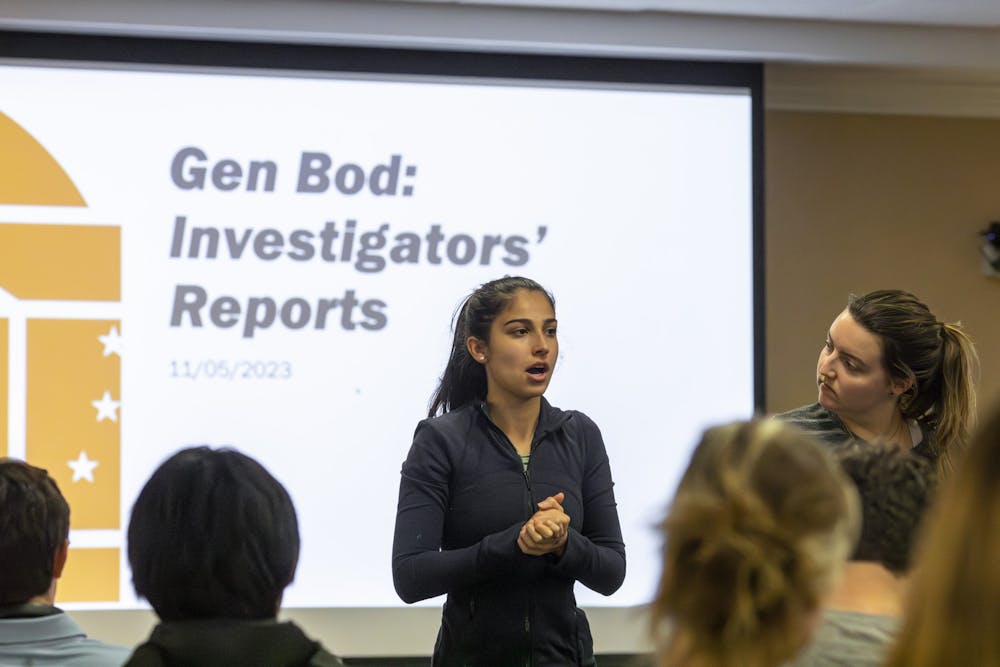The University Judiciary Committee met Sunday to discuss the cases they have left open at this point in the semester and conduct a brief training on writing investigative reports.
Currently, the Committee has 16 cases, 10 of which are open and six of which are stalled, all either due to Contributory Health Impairment holds or external circumstances. Lisa Kopelnik, UJC chair and third-year College student, told the Committee that most of these cases will likely be completed by the end of the term with a few potentially being moved to the spring semester.
Four of the six stalled cases are in a CHI hold, which occurs when a student is awaiting a report from an expert assessment to determine if a psychiatric or psychological condition contributed to or substantially influenced the student’s conduct in regards to the UJC complaint. An evaluation hearing for a CHI can be requested by a student, a dean or the UJC. The case then leaves the UJC and goes through a process with a CHI panel made up of different administrators.
Two of the cases are held for external circumstances and will be held indefinitely.
The Committee also reviewed how to write investigative reports, which detail the names and addresses of the accused, the complainants and then a detail of the actions of the accused. The purpose of an investigative report is to provide a factual basis for judges to adjudicate.
Campbell Coleman, senior investigator and third-year College student, reminded the Committee that investigative reports are plea dependent, meaning that if the accused student pleads not guilty, then the report’s questions should focus on whether the student committed the alleged action and if the action rises to the level of a standards violation. Investigations are run under the assumption that the accused student will plead not guilty unless otherwise stated.
“Contextual information is generally irrelevant [to the reports],” Coleman said. “We’re just trying to get the facts.”
According to Coleman, the content in the body of an investigative report should be relevant, precise, intentional, neutral and respectful. The language in an investigative report should indicate the timeline and location of the incident, the actions and who committed them, the demographic of the accused student and if there are any agreements or disagreements between the complainant and the accused.
Once completed, the report is signed by every involved party, the accused, the complainant, every witness interviewed as well as the investigator. Once an investigative report is signed the information it contains is considered fact.
The UJC will meet again Nov. 12 to discuss Title IV processes.
CORRECTION: A previous version of this article stated that there are 10 total cases, 6 of which are stalled. There are actually 16 total cases, 10 of which are open and 6 of which are stalled. The article has since been updated to reflect this changed.







